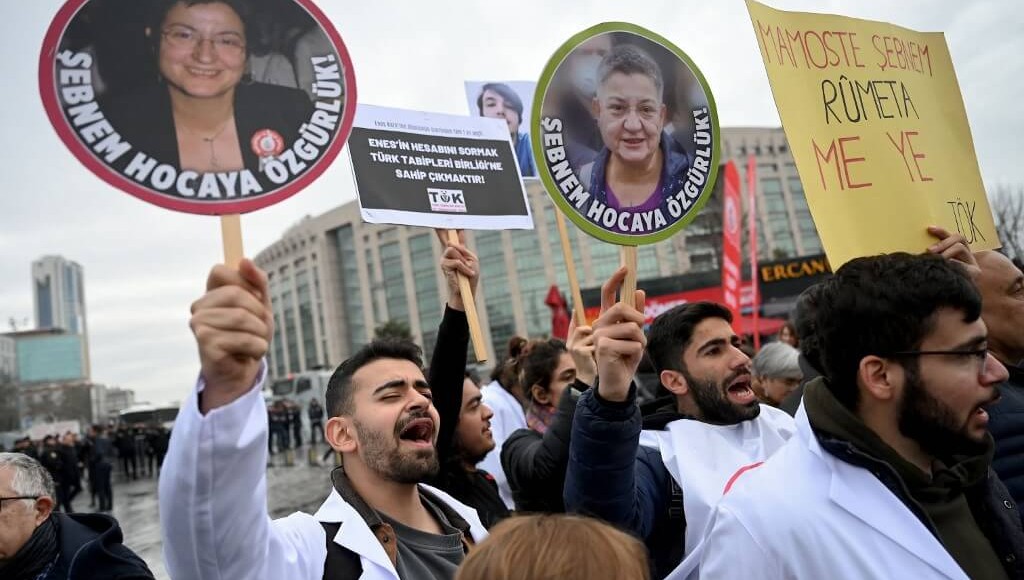A Turkish court has convicted Şebnem Korur Fincancı, president of the Turkish Medical Association and prominent human rights activist, of disseminating “terrorist propaganda” in a trial seen by government critics as an attempt to silence dissent, Agence France-Presse and Turkish media outlets reported.
The court sentenced Fincancı, also a forensic medicine expert, to two years, eight months and 15 days in prison and ordered her immediate release from pre-trial detention. The doctor is expected to appeal the verdict.
Fincancı, 63, was put in pre-trial detention in Ankara in October due to her remarks during an interview with the pro-Kurdish Medya Haber TV outlet and commented on a video purporting to show the Turkish military’s use of chemical weapons against militants of the outlawed Kurdistan Workers’ Party (PKK) in northern Iraq.
She suggested that a toxic gas may have been released but also called for an “effective investigation.”
Turkey strongly rejected the allegations, and Fincancı faced a backlash from government and nationalist circles and was accused of giving credit to claims made by the PKK and defaming the Turkish military.
The PKK is listed as a terrorist organization by Turkey and much of the international community.
The indictment sought a prison sentence of up to seven-and-a-half years on terrorist propaganda and insult charges.
The investigation into Fincancı was launched based on a criminal complaint filed by the Defense Ministry, according to the indictment.
Fincancı, who has spent much of her career documenting torture and ill-treatment and has served as president of the Human Rights Foundation of Turkey, denied the charges during her trial and said she has a professional opinion.
A European Union delegation observed the trial on Wednesday, along with rights groups and supporters, in a packed courtroom.
Ahead of the hearing, Dr. Ole Johan Bakke of the Standing Committee of European Doctors said the group was “deeply concerned about the continuous harassment of the Turkish Medical Association from the Turkish government and authorities.”
The World Medical Association has described the case against Fincanci as “unfounded, unlawful and unacceptable” and had called for her immediate acquittal.
Work with UN
The trial has been accompanied by stepped-up security measures and a heavy riot police presence both inside and outside the İstanbul courthouse.
Fincancı told the court on Wednesday that she did not expect a fair trial.
She cited a Turkish poll showing that “one out of every two people believes that people are in prison based on what they think.”
Fincancı’s medical association has a history of supporting opposition causes and sparring with the government of Turkish President Recep Tayyip Erdoğan.
It criticized the health ministry’s handling of the coronavirus pandemic and staged protests demanding better pay.
The union says that all 11 of its executive committee members are now under investigation for potential “membership in a terrorist organization.”
Fincancı herself was briefly detained in 2016 for appearing as a guest editor for a small newspaper read by Turkey’s Kurdish community.
But her collaboration with forensic experts working with the United Nations in places such as Bosnia has drawn international attention to the trial.
German human rights commissioner Luise Amtsberg called Fincancı “one of Turkey’s bravest voices,” and top global rights groups have demanded her release.
“The ruling in this politically motivated trial is unjust and must be overturned on appeal,” the Dublin-based Front Line Defenders rights group tweeted after Fincancı was found guilty.
“Good that Fincanci is being released from pre-trial detention, but she must not spend any more time behind bars!” it said.


